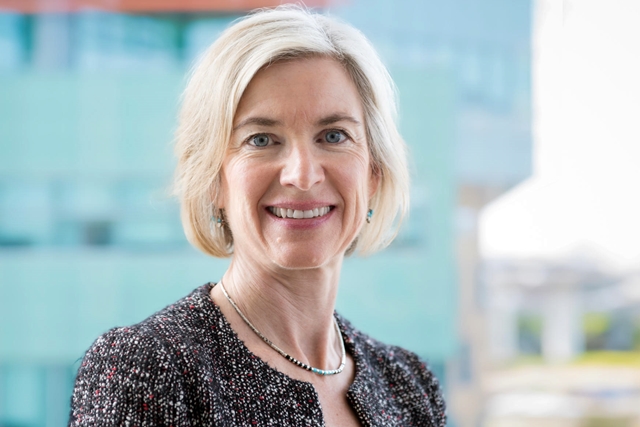9 Apr. 2020. Geneticists at two California campuses and Intel Corporation are making their intellectual property openly available for stopping the Covid-19 pandemic. The Innovative Genomics Institute, a research center affiliated with University of California campuses in Berkeley and San Francisco, along with Intel Corp., published the pledge to release their patents, with other organizations asked to do the same.
Semiconductor maker Intel Corp., in Santa Clara, California, and Innovative Genomics Institute established the Open Covid Pledge, a campaign to free up intellectual property for work on Covid-19 solutions. The pledge asks universities, companies, and organizations to openly commit to making their discoveries freely available until the pandemic ends. Enterprises supporting the campaign are asked to make public statements endorsing the Open Covid Pledge, or a commitment accomplishing a similar outcome.
The Open Covid Pledge provides sample license language for opening up intellectual property. The sample license offers any person or group non-exclusive, worldwide, royalty-free access to patents, copyrights, and other property rights other than trademarks or trade secrets. Use of these properties are limited to ending the Covid-19 pandemic, defined as “minimizing the impact of the disease, including without limitation the diagnosis, prevention, containment, and treatment ….” The pledge remains in effect until a year after World Health Organization declares the pandemic is over.
“These unprecedented times call for creativity and generous sharing of knowledge,” says geneticist and genome editing pioneer Jennifer Doudna, in an Open Covid Pledge statement. “Enabling individuals and organizations across the world to work on solutions together, without impediments, is the quickest way to end this pandemic.” Doudna is also executive director of the Innovative Genomics Institute.
Steven Rogers, Intel Corp. general counsel, notes, “Scientists and researchers need the freedom to make Covid-19 innovations and inventions without the threat of being sued by intellectual property owners. For that reason, we are giving Covid-19 scientists and researchers free access to Intel’s vast worldwide intellectual property portfolio – one of the world’s largest – in the hope and belief that making this intellectual property freely available to them will save lives.” That portfolio, says Intel Corp., covers more than 72,000 patents.
A number of intellectual property organizations, university labs, and open-source groups are supporting the Open Covid Pledge. One of those groups is Creative Commons that provides for open blanket licensing of intellectual creations. Another organization is Unified Patents that protects companies against from abusive patent litigation.
Open Covid Pledge encourages companies or organizations that cannot completely support the pledge to follow the spirit of the campaign and make their relevant discoveries more widely available. Wellcome Trust, for example, is calling on researchers and journals to make all data on Covid-19 freely available. And drug maker AbbVie is providing its HIV combination drug lopinavir/ritonavir to health authorities and researchers for trials of the drug as a Covid-19 treatment.
More from Science & Enterprise:
- Trial to Test Convalescent Antibodies for Covid-19
- Univ. Labs Design, Produce Medical Face Shields
- Trial to Test Malaria Drug to Stop Covid-19
- Phone App Tracking Covid-19 Symptom Reports
- Simple, Inexpensive Ventilator Developed [Updated]
* * *


 RSS - Posts
RSS - Posts
You must be logged in to post a comment.